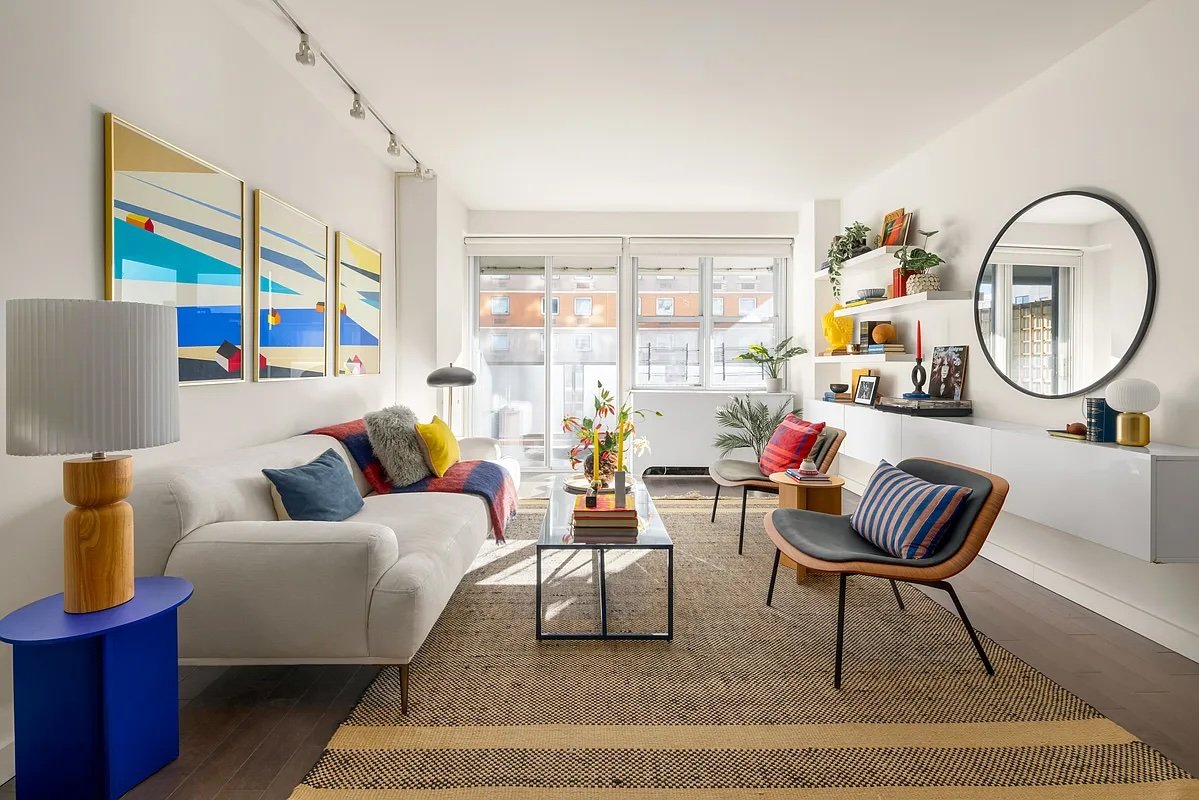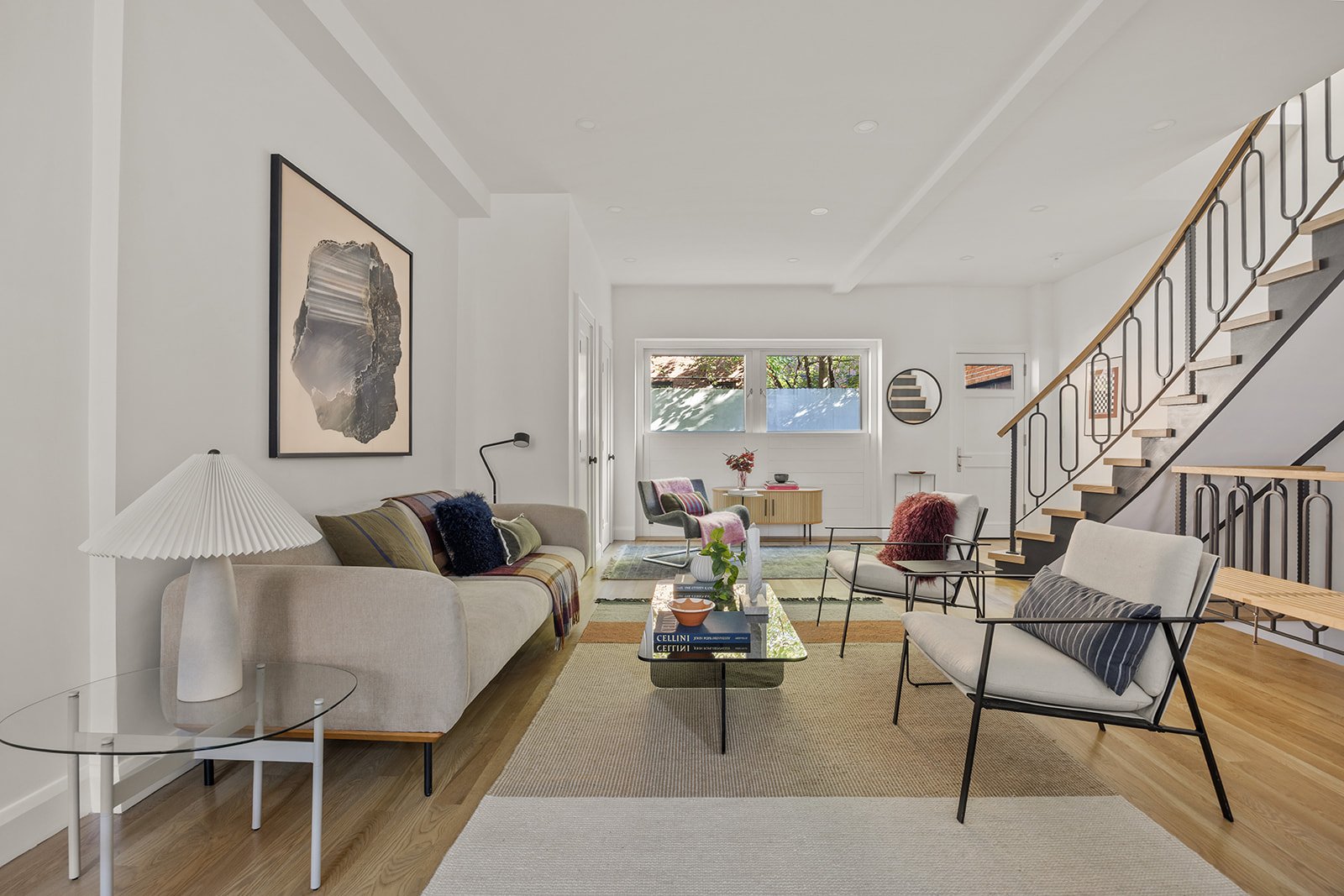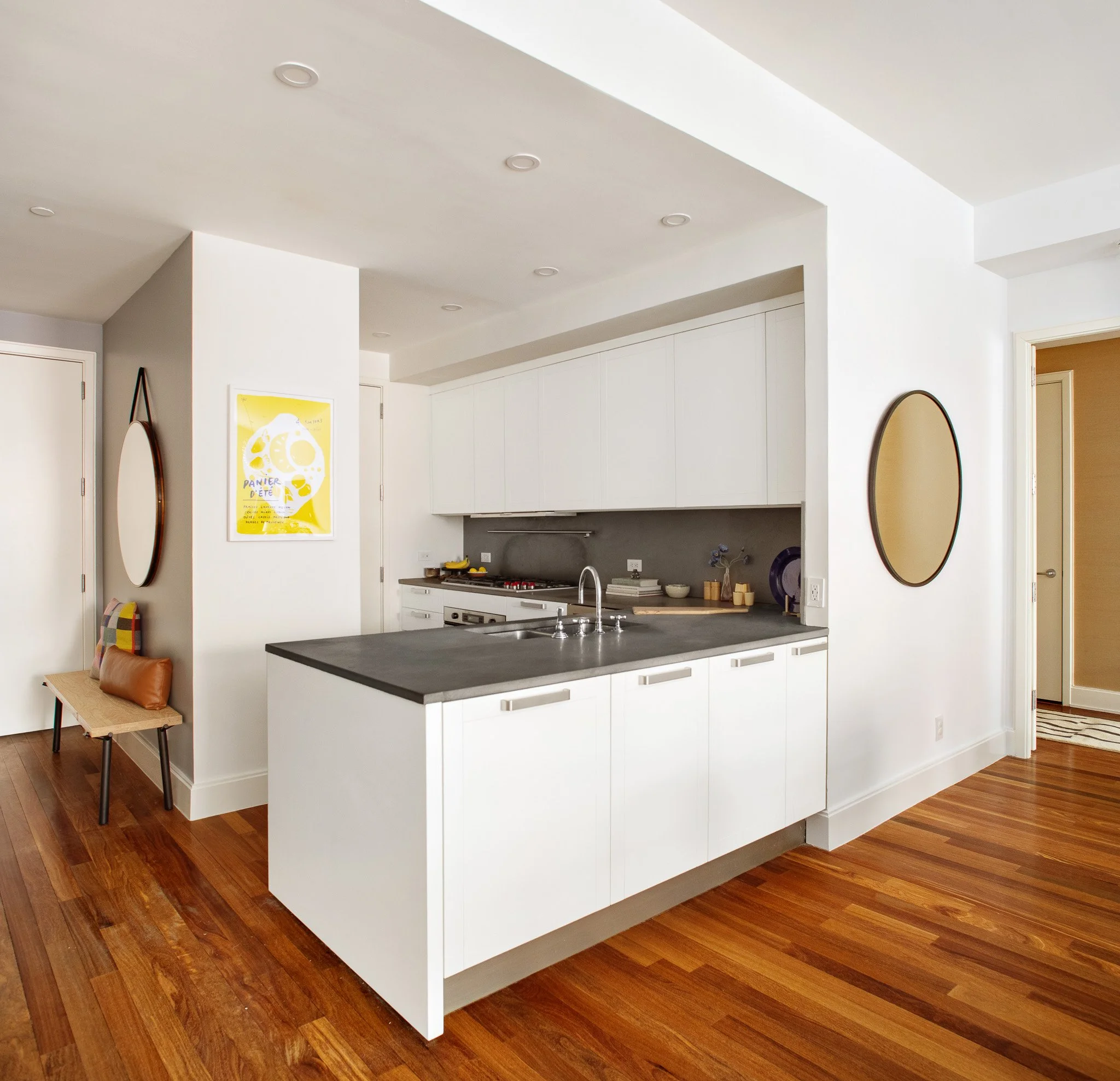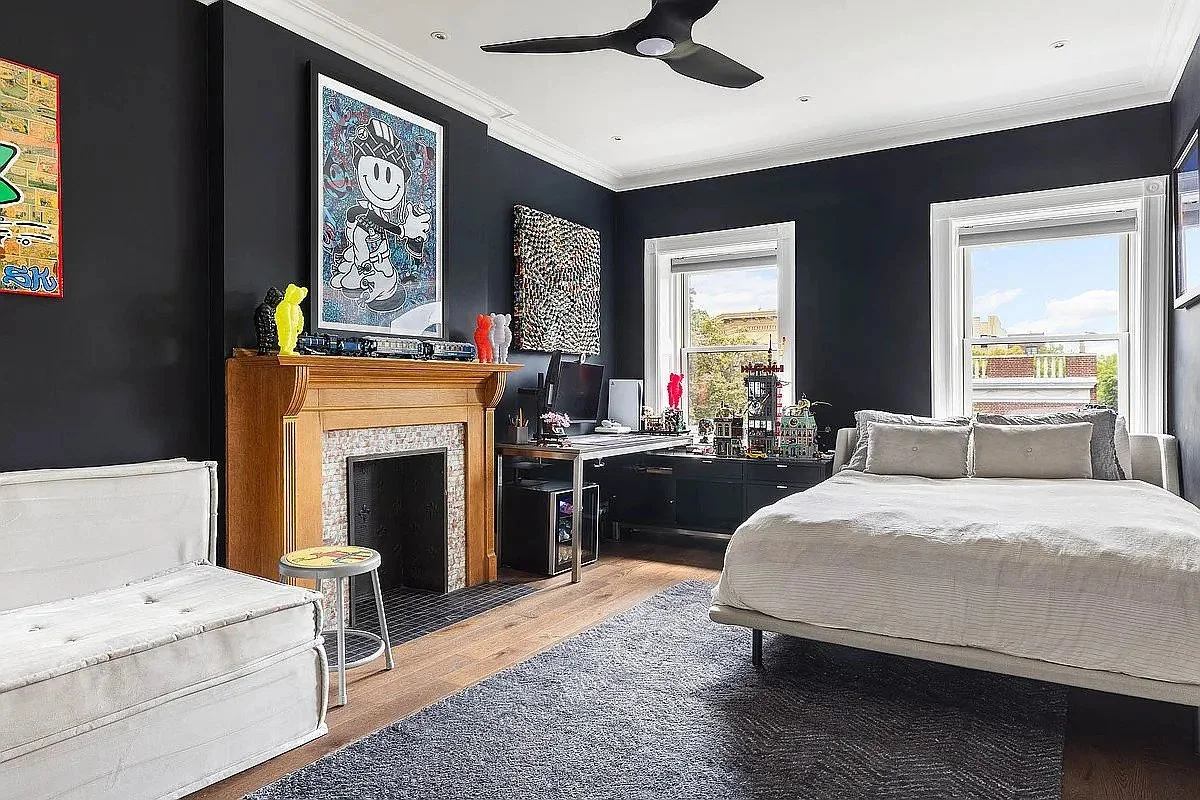Small Apartment Staging: Maximizing Every Square Foot
For small NYC apartments, balance is everything. We’ve transformed compact studios and cozy one-bedrooms into homes that feel intentional, open, and aspirational because smart staging can make even the smallest apartment feel expansive. When every inch matters, staging becomes less about filling space and more about defining it.
Here are a few of our favorite small-space staging strategies:
1. Choose the right scale
Go for rugs and furniture that fit (not shrink) the room. The impulse in a small space can be to go for miniature-sized pieces, but the opposite can actually make a greater impact. Rugs that extend almost to the edges of a room (as opposed to floating in the center of all the furniture) allow for full-sized pieces to anchor themselves on the rug and establish themselves in the room.
2. Layer lighting
Combine overhead, accent, and task lighting to add depth. Consider the ways in which a future buyer may use the space; a desk lamp to work by, or a floor lamp by the sofa for reading. Layering in different types of lighting help create a space that is more home, less showroom.
3. Use mirrors and vertical styling
Reflect light around smaller spaces with mirrors. Circular mirrors above console tables or fireplace mantels can reflect light without stopping the flow of the room. Round mirrors also provide a bit of contrast to other wall hangings, like art, that are square or rectangular. Draw the eye upward with large art pieces or art diptychs and tall plants.
4. Declutter with purpose
Keep surfaces clear to create a sense of calm and space. Especially in a small apartment, clutter is going to overwhelm potential buyers, and they’ll have trouble seeing past it. Check out our last post for more on why decluttering is the secret to occupied staging success.
TL;DR
The key to staging small spaces is understanding how to highlight what is there instead of apologizing for what’s not.
In a city where square footage is at a premium, the right staging helps buyers see possibilities, not limitations. With the right furniture scale, color palette, and sightlines, every square foot can work harder and photograph larger.




